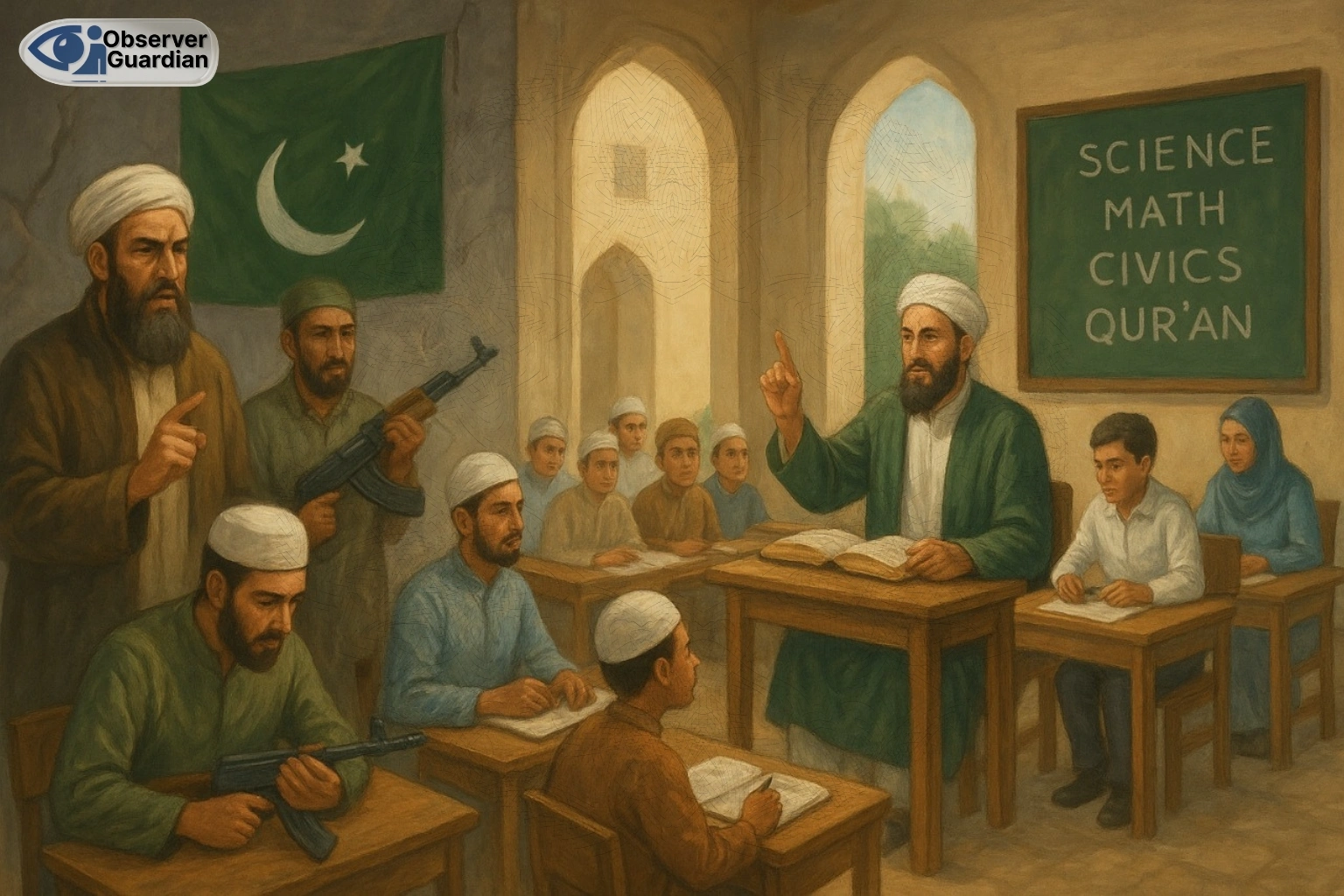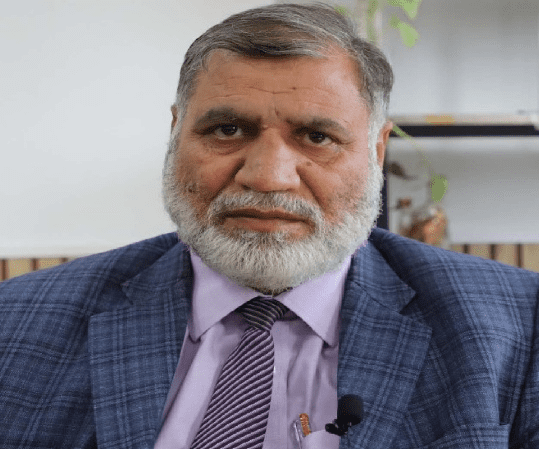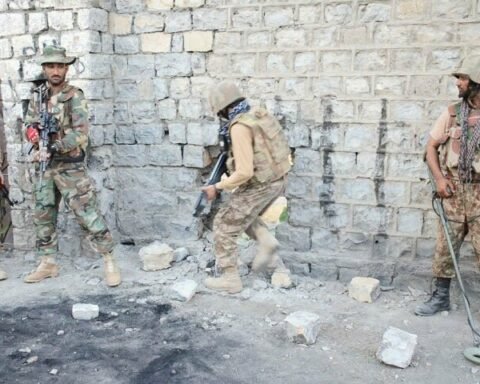From Centers of Extremism to Hubs of Moderation
For most of Islamic history, Madaris were places of real inspiration. They were not just schools for rote memorization. In fact, they shaped leaders, thinkers, and reformers who left their mark on Muslim societies. For instance, Imam Abu Hanifa, Imam Ghazali and Shah Waliullah are the names tied to scholarship, reform, and guidance, not violence. The Qur’an’s very first command was about reading and learning (96:1-5), and the Prophet ﷺ called scholars the heirs of the prophets. That tells you everything about the intended role of Madaris and they are supposed to guide, teach, and nurture.
Things took a darker turn in recent decades when a handful of groups twisted this sacred tradition. Instead of being houses of learning, some Madaris were exploited as recruitment grounds.
That kind of misuse is exactly what the Qur’an condemns as fasad fil-ardh spreading corruption on earth. Sadly, even though the majority of Madaris kept doing their work quietly, these bad actors managed to tarnish the entire system’s reputation. Internationally, Pakistan became associated with militancy instead of the centuries-long tradition of scholarship.
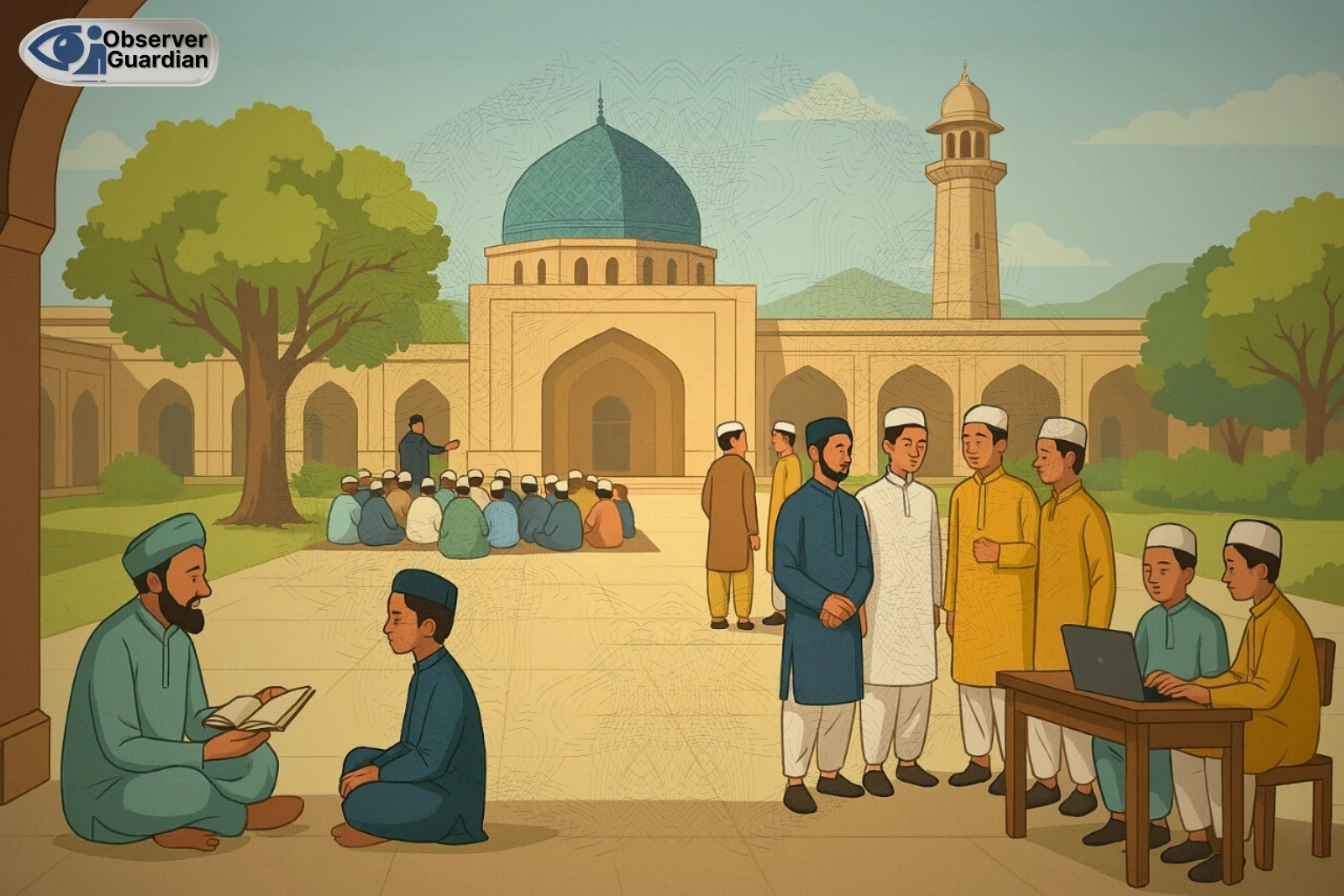
Bridging Tradition and Modernity Through Curriculum Reform
The state eventually realized how dangerous this path was. Reforms were introduced like institutions had to be registered, modern subjects were added to the curriculum, and oversight was tightened. This was not about stripping Madaris of their identity but about bringing them back to their real mission. You can see it in the way subjects like science, math, and civics are now taught alongside Qur’an and Hadith. The idea is simple to create graduates who are both grounded in religion and capable of engaging with the modern world.
One of the biggest steps forward was the Paigham-e-Pakistan declaration in 2018. Over 1,800 scholars came together and signed a fatwa that condemned suicide attacks, rebellion against the state, and violent extremism as haram. That is a powerful statement of unity. It sent a clear message that Islam does not condone militancy, and that Pakistan’s ulema would not allow religious institutions to be hijacked anymore.
Reforms, Unity, and the Path Forward
I have visited a few reformed Madaris, and what struck me is how the atmosphere feels different. Alongside Tafsir and Fiqh, you see students learning computer skills or working on civic projects. Some are preparing for university exams. These are not kids being cut off from society. They are being equipped to contribute to it. And that is exactly what the Prophet ﷺ meant when he said the best among us are those who learn the Qur’an and teach it. That mission needs peace and knowledge, not weapons.
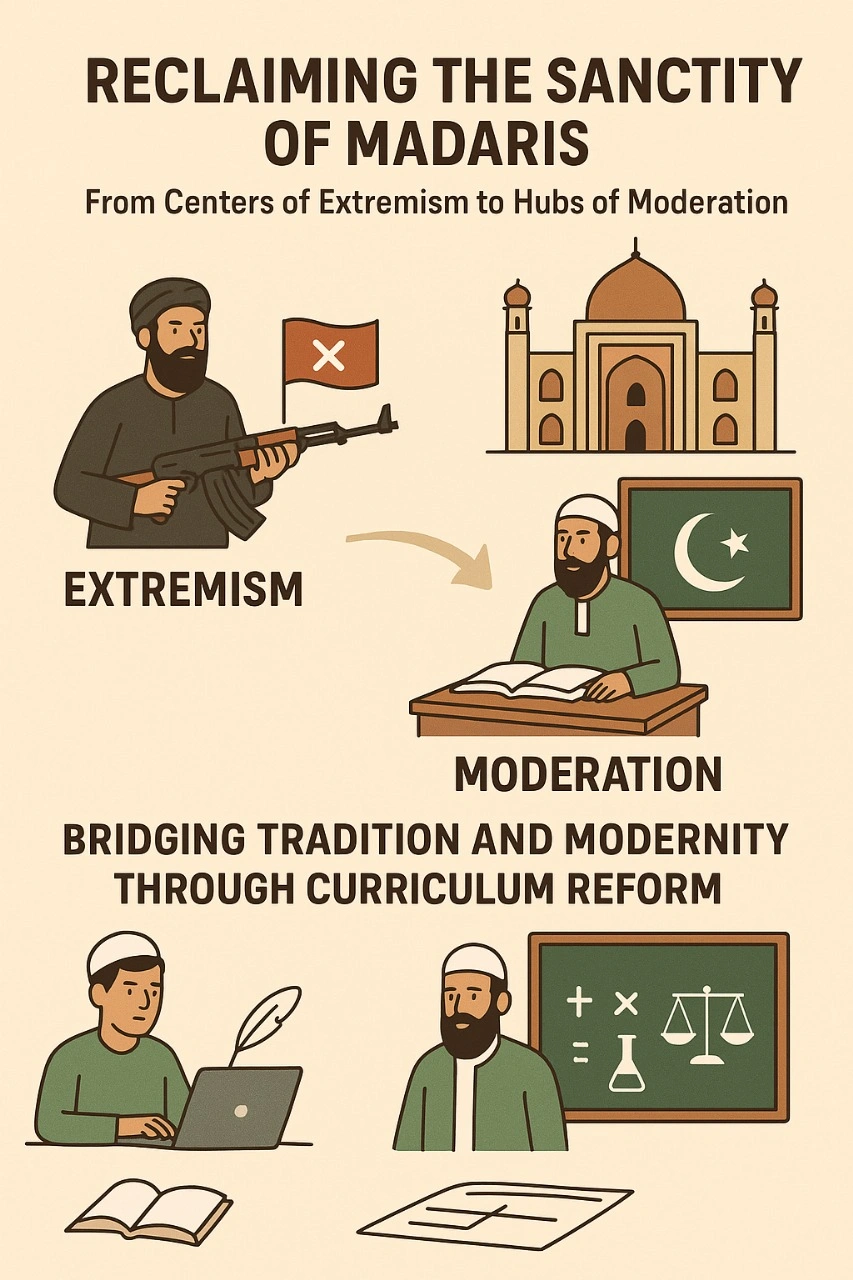
If Pakistan keeps building on these reforms, Madaris can regain their old standing as respected centers of learning. They can help stitch together national unity, nurture responsible citizens, and push back against sectarian divides. Of course, the job is not done. Oversight must stay strong, and Madaris themselves need to embrace their role in preparing students for a future where being both devout and worldly is not a contradiction.
At the end of the day, Madaris will only be judged by what they produce. If their graduates walk out ready to serve society, respect diversity, and live by the values of Qur’an and Sunnah, then Pakistan will have succeeded in reclaiming their sanctity.
If they slip back into isolation or get exploited again, the same old cycle will repeat.
The choice is clear that books, classrooms, and service to society, not guns or slogans. That is how Madaris can move from being unfairly linked with extremism back to being seen as the backbone of Islamic learning. And honestly, Pakistan’s future depends on it.
⚠ Disclaimer
The views and opinions expressed in this article are exclusively those of the author and do not reflect the official stance, policies, or perspectives of the Platform.

